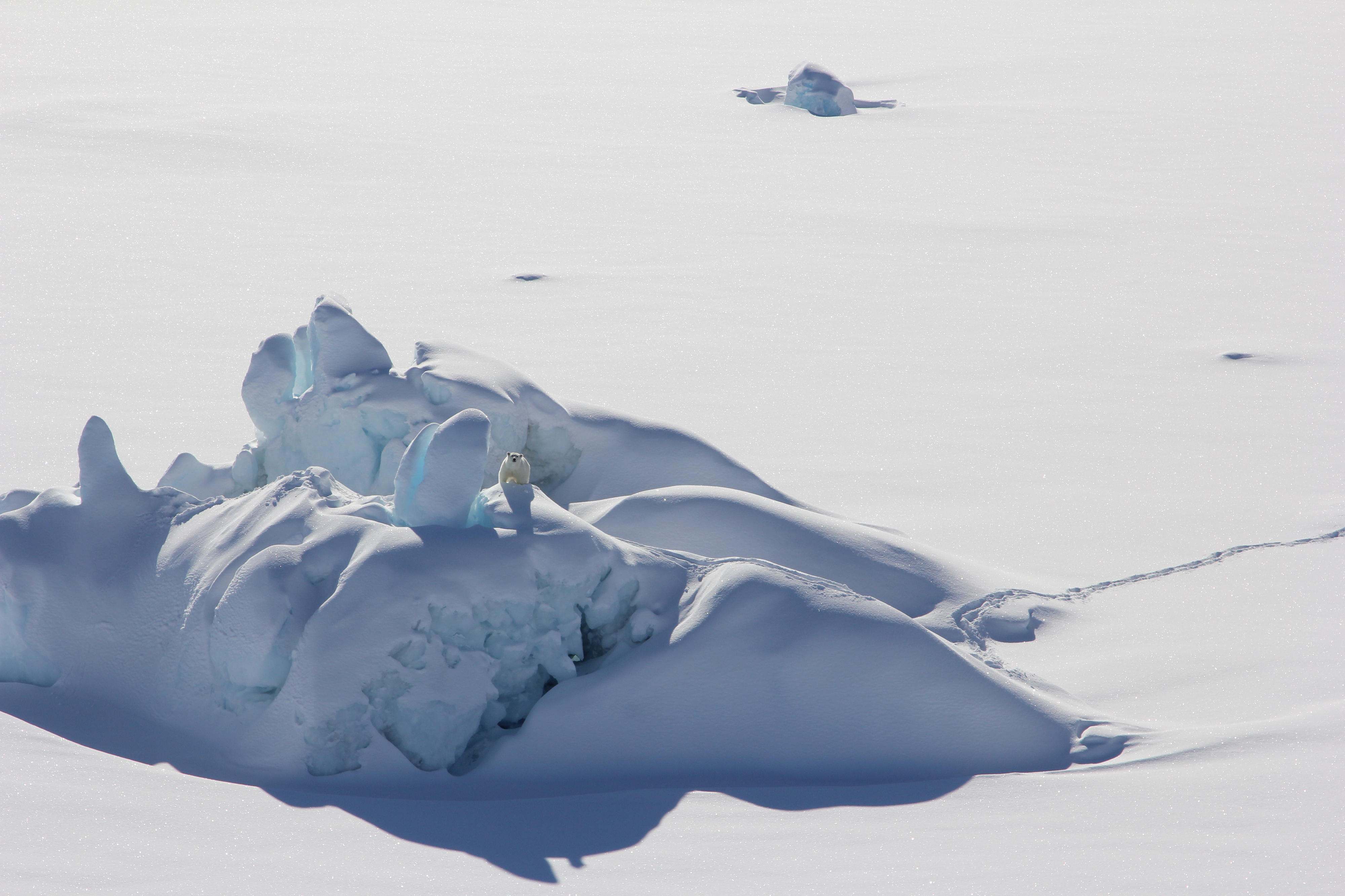Arctic’s ‘last refuge’ for polar bears may be more vulnerable to climate crisis than first thought, study says
The Arctic is one of the most rapidly warming regions on Earth

A “last refuge” for polar bears and walruses in the Arctic Ocean may be more vulnerable to the climate crisis than once thought, a new study says.
The research finds that global heating played a role in an episode of record melting in the Arctic’s “last ice area” – a critical refuge for Arctic wildlife – in 2020.
The Arctic is one of the most rapidly warming regions on Earth, with some parts of the polar region heating up at a rate that is four times faster than the global average.
Sea ice in the region has already declined dramatically as a result of this rapid warming. The last 14 years have seen the 14 lowest Arctic sea ice levels since satellite records began.
Despite the rapid downturn, there remains a region north of Canada and Greenland where the sea ice is thicker and older and, therefore, expected to persist for longer as temperatures continue to climb. It is dubbed the “last ice area”.
Also known as “Tuvaijuittuq” – which means “the ice never melts” in the Inuit language Inuktitut, the region is expected to act as a critical last refuge for mammals such as polar bears and walruses as sea ice disappears across much of the Arctic Ocean.
However, last summer scientists observed an episode of extreme melting in this region, with sea ice levels falling to a record low of 50 per cent on 14 August.
The new research, published in the Communications Earth & Environment journal, finds that global heating is partially to blame for the record sea ice low.
“Current thinking is that this area may be the last refuge for ice-dependent species. So if, as our study shows, it may be more vulnerable to climate change than people have been assuming, that’s important,” said Dr Axel Schweiger, study lead author and a polar scientist at the University of Washington.
To study what caused the record ice low, the researchers used a combination of satellite images and mathematical modelling. They focused their research on the Wandel Sea, the easternmost sector of the last ice area.
The findings show that the record ice loss in 2020 was mostly driven by unusual weather, including strong winds – which can cause ice to break apart and blow away.
However, around a fifth of the ice loss was driven by long-term ice thinning caused by the climate crisis, according to the results.
The findings reinforce the need to take urgent action on rapidly climbing CO2 levels, said Dr Schweiger.
“[We need to] reduce greenhouse gas emissions as quickly as possible so ice-dependent animals won’t have to rely on this area as a last refuge,” he told The Independent.
The results fit with what is known about how the climate crisis is driving unprecedented change in the Arctic, adds Prof Jonathan Bamber, a leading polar scientist from the University of Bristol who was not involved in the study.
“Parts of the Arctic experienced record temperatures and wildfires in 2020. These extreme events have been predicted by climate models for some time as the Arctic warms at a rate more than twice the global average,” he told The Independent.
“It’s not too much of a surprise that older sea ice in the Arctic’s ‘last ice area’ is responding to these extreme conditions, but it is definitely further cause for concern, especially for species that depend on this ice as a habitat.”
Subscribe to Independent Premium to bookmark this article
Want to bookmark your favourite articles and stories to read or reference later? Start your Independent Premium subscription today.

Join our commenting forum
Join thought-provoking conversations, follow other Independent readers and see their replies